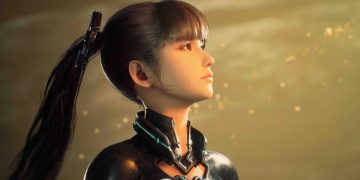Expressing my fondness for the steady pace of traditional Japanese RPGs often leaves me struggling to put it into words. Despite occasionally grumbling about things like random battles or labyrinthine dungeons, the rhythmic charm of a well-crafted RPG never fails to draw me in. There’s a comforting substance to these games that makes them uniquely satisfying. “Dragon Quest III HD-2D” stands out as a shining example, a game that captures that nostalgic appeal and might just be my go-to recommendation for others to experience that nostalgic warmth. It’s remarkable how an NES RPG, born in the 1980s, remains so enticing over three decades later. Even more surprising is how this luxurious remake opts for subtleness over spectacle, faithfully maintaining the essence of the 1988 original while seamlessly adding a few modern enhancements. It’s a brilliant reimagining that preserves the genius of the classic without a trace of outdatedness.
Dragon Quest III’s historical significance in Japan can’t be overstated, as this was the entry that truly cemented the franchise’s iconic status. When it launched back in 1988, it smashed records with over a million copies sold on day one, even giving rise to the mythical tale about the Japanese government outlawing the release of Dragon Quest games on weekdays (spoiler: it’s just a legend). Yet, this frenzy was justified because, for its time, Dragon Quest III was a masterpiece. The groundwork was laid by the first two games, each slated for their own HD-2D remakes soon. Dragon Quest introduced the world to a solitary hero embarking on a straightforward quest, while Dragon Quest II expanded on this with a full party and more complex mechanics, though it wobbled on execution. Dragon Quest III, however, hit a home run.
In this epic adventure, you step into the shoes of the 16-year-old progeny of Ortega, a revered hero who perished while fighting the sinister Baramos. After a revealing quiz that influences your character’s development, your journey unfolds across a vast world, driven by the mission to avenge your father’s death and vanquish Baramos. Craft your four-person team from a mix of characters and classes, embarking on episodic quests where you aid various folk as you travel. The class system starts off simple but gains depth as you advance. When your characters reach sufficient levels, you can change their class, retaining learned skills but resetting their stats, giving you a fresh start. It’s uniquely enjoyable to tinker with this, shaping characters into fascinating and effective companions. You might keep a mage focused on becoming a Sage, or you might transform a healing Priest into a hardy melee fighter capable of dishing out hefty damage and reviving allies. Revisiting this powerful class system in Dragon Quest III was like embracing an old friend.
The nostalgic pull of the turn-based combat remains intact, familiar and reassuring. The battle mechanics have seen little change, though I found myself relying more on the Tactics settings, which allow for automated battles, particularly during random encounters. While it might not be my all-time favorite battle system, it’s reliable and satisfying. It’s a comforting ride, not in the simple, laid-back sense of a farm sim, but in the familiarity and mood it evokes.
The additions in this remake serve to enrich the overall experience. The Monster Arena stands out, offering a twist where you recruit creatures to participate in battles reminiscent of Pokémon. The remake also expands on the story, particularly shedding more light on Ortega, adding depth without altering the essence of the narrative. Alongside these new elements, the remake boasts modern enhancements like dual-language voice acting, adjustable battle speeds, three difficulty tiers, convenient auto-saves, and more. If there was a modern feature you were hoping for, chances are it’s been included.
Bringing an iconic title back to the forefront, “Dragon Quest III HD-2D” introduces this seminal RPG to a new generation. While it remains a quintessential RPG experience, its lasting brilliance is undeniable even now. Unlike those archival, museum-like games that sometimes pop up, this remake captures the spirit of a monumental classic with care, ensuring it reaches more players today. Undoubtedly, there have been standout RPGs in the past 35 years, yet few would be as impactful as they are were it not for Dragon Quest III setting the stage.














































